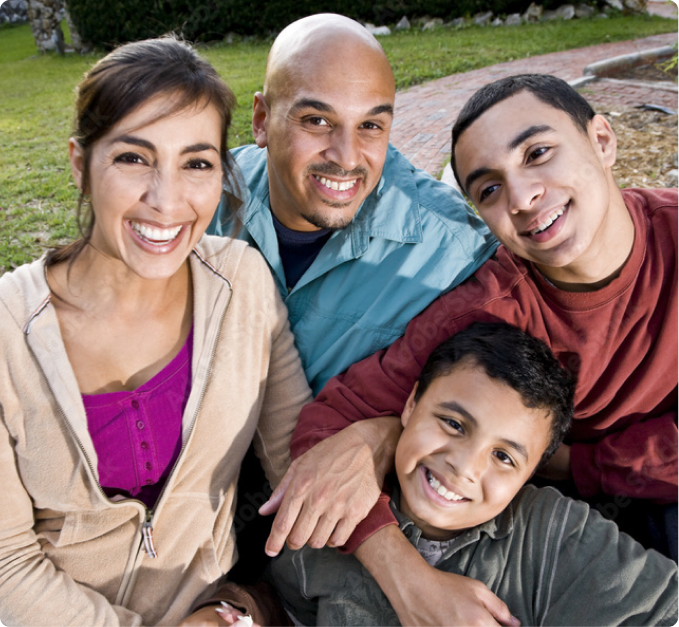Menu
In a mental health crisis? Call or text 988.
Get Help at CHC 
What are you looking for?

Partnerships that Deliver Hope
CHC, Sand Hill Foundation, and Palo Alto Community Fund Work Together to Provide Youth Mental Health Services
Over the past six years, CHC’s Teen Mental Health programs have developed into a multi-pronged approach that spans from crisis prevention through therapy and education, to intervention through Dialectical Behavior Therapy (DBT)-based Skills Groups and the RISE Intensive Outpatient Program, in partnership with Stanford. In high-risk cases, it’s a 24/7 job with the CHC clinician as a young person’s dedicated lifeline, just a call or text away.
The Palo Alto Community Fund (PACF) and the Sand Hill Foundation (SHF) are two of the local, visionary funders that recognized the need to address youth mental health in the community early on. Both stepped up to support the launch of CHC’s Teen Mental Health Initiative in 2016.
“We knew we needed to do something,” says PACF Executive Director Lisa Van Dusen. “Several people suggested, ‘Let's talk to Children's Health Council.’ CHC was where we needed to start because they’ve been working on the ground to address this issue in our community.”
Again in 2021, as the youth mental health crisis skyrocketed, “We knew we needed to do something,” says PACF Executive Director Lisa Van Dusen. “Several people suggested, ‘Let’s talk to Children’s Health Council.’ CHC was where we needed to start because they’ve been working on the ground to address this issue in our community. They are a leader in the field, and they are pushing the field forward.”
Youth mental health has been a priority for the Sand Hill Foundation since its inception in the nineties. For its founder, philanthropist Susan Ford Dorsey, it was also personal. Dorsey, also a former CHC board member, utilized CHC’s parenting classes and private sessions for her own family. She describes CHC as “a prized resource” in raising her son. “Their professional advice has been invaluable. They bring rigor and professionalism to every aspect of their work.”
It starts with the community.
Working with funders that have roots within the community is an important part of CHC’s expansion of services. For decades, PACF and SHF have been deeply embedded in the local area where they continually assess and identify areas of need. Around 2017, the Sand Hill Foundation solicited input from its partners in the field throughout San Mateo County and across the country and discovered that many young people and their families were not seeking mental health support until they were in crisis. The study also revealed major systematic disconnects to accessing care.
...many young people and their families were not seeking mental health support until they were in crisis. The study also revealed major systematic disconnects to accessing care.
“Over the course of time, we’ve been able to develop funding relationships with amazing local organizations, whose perspectives we deeply value, CHC being one of them,” says Jessi Misslin, Vice President of Engagement & Program Services with Pacific Foundation Services, part of a team that provides philanthropic support services to Sand Hill Foundation and manages the foundation’s mental health grantmaking.
PACF’s Van Dusen echoes that sentiment of working with local organizations, “Our board and advisory board members serve as antennae in Palo Alto, East Palo Alto and Menlo Park—reaching into the community to identify areas of need. As a result, we will often support a promising program pilot that for other funders might be a ‘wait and see.’ We know that we need to take some risks ourselves to reduce the risks to frontline nonprofit organizations as they deliver new services.”
From Crisis to Systems Change
After its extensive research, SHF launched the Wellness Partnership in 2018, a funding initiative aimed at improving systems for youth mental health. The Foundation values collaboration as a tool for social change, and its Partnership provides opportunities for grantees to work together to create higher efficiency in delivering access to care that are both culturally- and trauma-responsive for young people and their families. “We wanted to meet young people and their families where they were already being served and integrate mental health and well-being services into those experiences,” says Misslin.
“We wanted to meet young people and their families where they were already being served and integrate mental health and well-being services into those experiences,” says Misslin.
For years, CHC has provided community-based support to Ravenswood families, channeling bilingual, culturally relevant mental health and education support through partner organizations and schools. Now, as a Wellness Partnership grantee, CHC and their Ravenswood partners have taken this work a step further, working together to build a more equitable and accessible system of mental health care for Ravenswood youth. Sand Hill Foundation has been a critical partner in this endeavor, not only as funder, but also acting as a trusted advisor, educator and connector.

PACF has also supported CHC’s community-based programs in Ravenswood through their Dave Mitchell Impact grant for youth mental health. Says Van Dusen, “CHC Ravenswood’s barrier-free care for a population that needs it all the more is an example of how CHC looks ahead to identify issues and community-based solutions. CHC provides mental health professionals who are multilingual and who come directly from the communities. And they provide these services literally where the youth and their families are—which might be in their own driveway or in collaboration with community organizations and schools like EPACENTER through art therapy.”
Strength & Resilience
All of CHC’s programs, from Teen Mental Health to CHC Ravenswood, have adapted to each logistical hurdle and societal need that has presented itself along the way. The agency has witnessed supportive partners like Sand Hill Foundation and Palo Alto Community Fund flex and grow as well. It’s a kind of synergy that often happens with philanthropic organizations and their grantees.
“In philanthropy, the word 'partner' gets tossed around pretty easily and it can mean many things, but I truly see CHC as a partner in this work. I’ve learned so much about the system of care working with CHC,” says Misslin.
“In philanthropy, the word ‘partner’ gets tossed around pretty easily and it can mean many things, but I truly see CHC as a partner in this work.” says Misslin. “I’ve learned so much about the system of care working with CHC, whether through one-on-one conversations with the brilliant Dr. Ramsey Khasho, who is an incredible leader in this field, or by participating in the Teen Mental Health Leadership Collaborative, a quarterly convening of folks from across the region who care about the mental health of young people.
“CHC’s commitment to leading with empathy and listening with care, has had a direct impact on how I approach my work as a funder in this space. They’ve had an impact both professionally and personally — as a mom of two, I’ve often relied on CHC resources to help navigate difficult situations and find the right words to support my kids.”
Adds Van Dusen, “Imagine what it would be like if we didn’t have CHC. If we took Children’s Health Council out of the equation… Wow. Think of the gaps that there would be. We can’t take CHC for granted. Our community without Children’s Health Council would be very different — and unthinkable.”
For CHC, the feeling is deeply mutual. The organization is eternally grateful to partner with SHF and PACF, and many more, to deliver the best care possible to those in need. There is truly no greater reward than seeing young people thrive and reaching their potential in life. Delivering hope is an accomplishment that we as a community can all benefit from, now and into the future.


